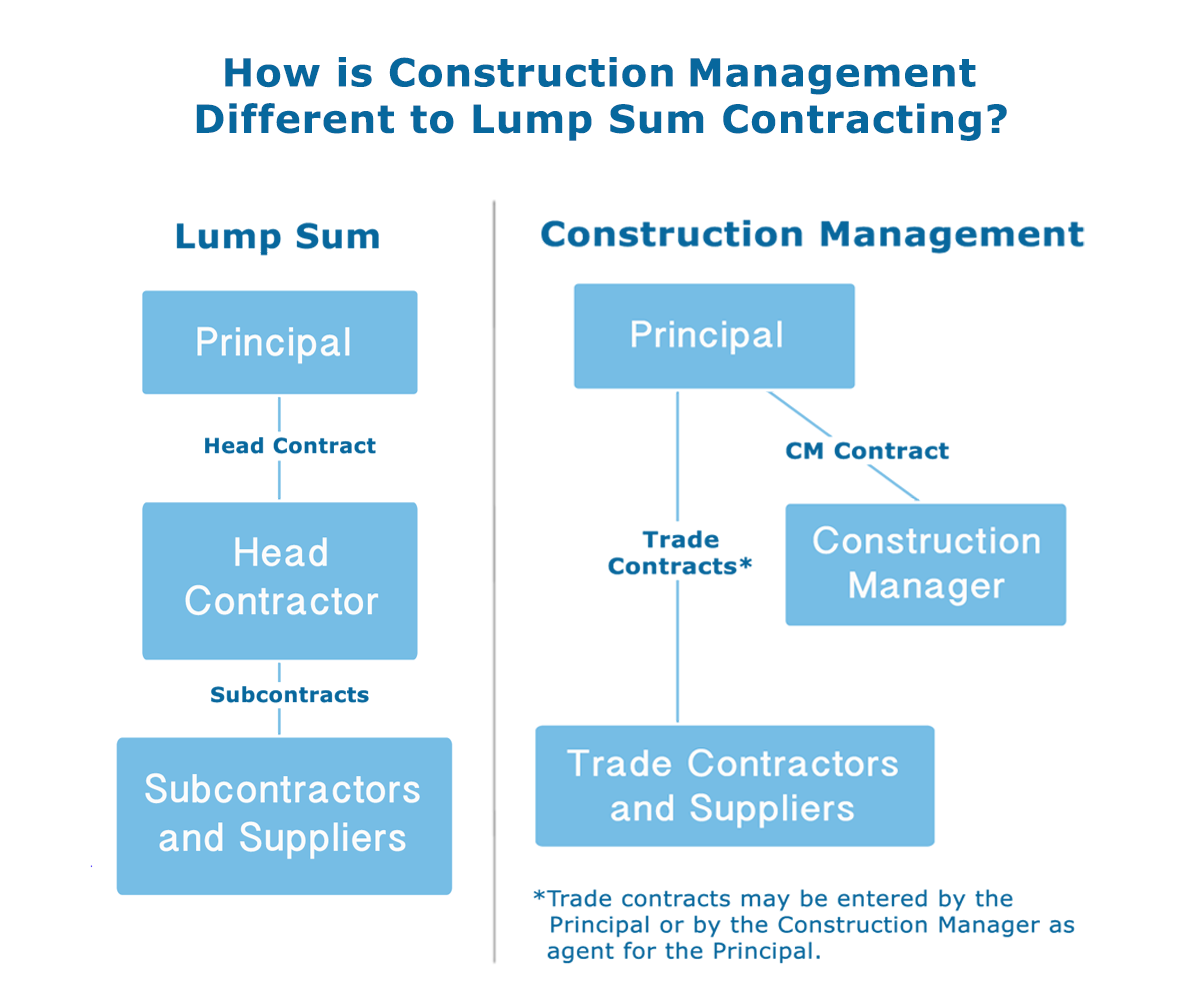A construction management contract is one type of Early Contractor Involvement (or ‘ECI’) arrangement, and differs from a traditional lump sum model in a number of respects. This article explains the basics.
How does a construction management contract work?
Construction management is very different to traditional lump sum contracting. As the name implies, a 'construction manager' is engaged to 'manage' the works for the principal - which is quite a different proposition to actually carrying them out.
In traditional construction management, the construction manager is appointed as the principal’s agent to manage and supervise the construction of the project on the principal’s behalf.
In contrast to lump sum contracting, the construction manager is usually not accountable to the principal for the acts and omissions of the trade contractors (such as defects or delays). This is because the construction manager’s role is limited to managing and supervising trade contractors, rather than taking on the risk of their non-performance.
A construction management contract is a form of ‘cost plus’ engagement. Construction management is one way an ‘Early Contractor Involvement’ (or ‘ECI’) engagement can be structured. You can read more about ECI contracts here.
If you'd like to know more about the different types of contracting models used in the construction industry, you can read more about this here.
What are the advantages of a construction management contract?
The main advantages of a construction management contract are:
1. It is well suited to fast-track projects. The construction manager can be engaged before the design has been finalised.
2. It gives the principal complete visibility over the amounts payable to trade contractors.
3. The principal retains control at all times, and benefits from the expertise of a construction manager whose interests align with its own.
4. The principal is less exposed in the event of a solvency event affecting the construction manager (in comparison with a lump sum head contractor).
What are the main differences between a construction management contract and a lump sum contract?
The table below summarises the main differences between a construction management contract and a lump sum contract.

The diagram below illustrates the differences in the contractual relationships.

What are the disadvantages of construction management?
The main disadvantages of construction management contracts are:
- the construction manager has less of a natural incentive to tightly manage the cost of the works than under a lump sum arrangement;
- the principal does not have the benefit of a competitive tender process at the head contractor level and is therefore more reliant on the construction manager; and
- the final overall cost may not be known to the principal until relatively late in the project.
In relation to the first point, a head contractor on a lump sum engagement has two strong incentives to manage trade contractors’ performance. The first is that it will be directly accountable for any subcontractor default. The second is that a head contractor’s profit on the project will depend on the final amount it is required to pay to the trade contractors.
Although a construction manager may have contractual obligations to act in the principal’s best interests, and although reputational issues also play a part, these motivators are often not as powerful as the financial rewards (and risks) that arise under a lump sum scenario.
Principals will sometimes seek to introduce financial incentives into a construction management contract to try to bridge this gap.
Is a construction management contract a good idea?
The answer depends on your circumstances.
If time, pricing transparency, flexibility and control are more important to you than earlier pricing certainty and having a single point of accountability, a construction management approach is certainly worth considering.
Construction management and other forms of ECI contract work particularly well for complex projects, where not all aspects of the design are capable of being finalised upfront.
Principals who prefer construction management contracts tend to be those operating on short timeframes on complex projects, and who are interested in retaining control and who want pricing transparency down the contracting chain.
If you'd like to read more about your different options, you can read about the different types of contracting model here.
What is a good construction management contract?
The most common form of construction management contract in Australia is AS 4916. Principals who opt to use AS 4916 will often seek to make amendments to ensure the construction manager's interests are aligned as closely as possible with the principal's. Click here if you'd like to learn more about AS 4916.






